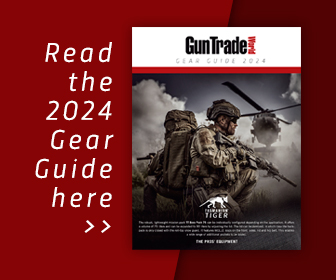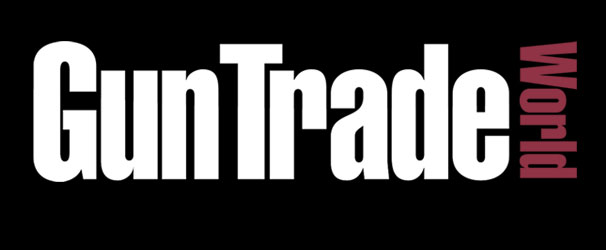US halts exports of certain firearms and ammunition

The U.S. Department of Commerce has temporarily suspended the issuing of new export licences. The halt in export licenses will take place for around 90 days.
Below is a release from the U.S. Department of Commerce regarding its export ban as well and answering important questions that you may have.
Effective immediately, the U.S. Department of Commerce (the Department) is pausing for approximately 90 days the issuance of new export licenses involving certain firearms, related components, and ammunition under its jurisdiction and the provision of new export assistance activities for such products to all non-governmental end users worldwide, apart from those in certain destinations. The Department may take additional steps to further U.S. national security and foreign policy interests.
During this “pause” period, the Department will further assess current firearm export control review policies to determine whether any changes are warranted to advance U.S. national security and foreign policy interests. The review will be conducted with urgency and will enable the Department to more effectively assess and mitigate risk of firearms being diverted to entities or activities that promote regional instability, violate human rights, or fuel criminal activities.
This pause applies to the Bureau of Industry and Security’s (BIS) issuance of new licenses involving certain firearms, related components, and ammunition controlled on the Commerce Control List, Supp. No. 1 to part 774 of the Export Administration Regulations, 15 CFR parts 730-774 (EAR), specifically, the following four Export Control Classification Numbers (ECCNs): ECCN 0A501, ECCN 0A502, ECCN 0A504, and ECCN 0A505, that are destined for non-governmental end users worldwide apart from those located in Ukraine, Israel, or a country in Country Group A:1 (Wassenaar Arrangement Participating States), Supp. No. 1 to part 740 of the EAR.
Consistent with the above, the Department’s International Trade Administration (ITA), Global Markets and U.S. & Foreign Commercial Service is pausing acceptance of new requests for export assistance (fee or non-fee-based) for firearms and ammunition to non-governmental end users worldwide, apart from those located in Ukraine, Israel, and Country Group A:1. The ITA pause applies to semi-automatic and non-automatic firearms, shotguns, and receivers (frames) and ammunition.
Which items and Export Control Classification Numbers (ECCNs) are subject to the pause in licensing?
The Bureau of Industry and Security (BIS) is pausing the issuance of new export licenses for exports of all items controlled under ECCNs 0A501, 0A502, 0A504, and 0A505 to non- government end users worldwide, apart from certain destinations. Items controlled under these ECCNs that will be exported, reexported, or transferred (in-country) to destinations in Country Group A:1 (see supplement no. 1 to part 740 of the Export Administration Regulations (EAR)), Ukraine, and Israel are excluded from the pause.
What is the impact of the pause on license applications for export to end users in Country Group A:1, Ukraine, or Israel or government end users worldwide?
BIS will continue its review of license applications for exports of covered items to any end user in Country Group A:1, Israel, or Ukraine, or to any government end user worldwide. Current BIS licensing policies for these applications remain in effect, and BIS, in coordination with its interagency partners, will continue to rigorously review all license applications to determine whether approving such applications is consistent with U.S. national security and foreign policy interests, such as supporting U.S. government cooperative programs with foreign partners.
Should exporters continue to submit applications?
Exporters may continue to submit license applications to BIS regardless of whether the items on the application are subject to the pause. Applications subject to the pause, however, will be placed on “Hold Without Action” (HWA) and will not be processed until the end of the pause.
Are previously issued/received licenses still valid?
The pause does not affect previously issued/received export licenses. Exporters may continue to export in accordance with the terms and conditions of a previously issued/received license. During this review period, the Department may take additional steps to further U.S. national security and foreign policy interests.
BIS retains the authority to modify, suspend, or revoke licenses as appropriate. Should exporters with valid licenses violate the terms of their licenses, or present other U.S. national security or foreign policy concerns, BIS can respond by revoking their license(s) or by pursuing criminal or administrative action.
BIS continuously monitors export licensing and trade data to determine whether modification, suspension, or revocation of a license is warranted based on these considerations.
Are previously submitted/currently in process license applications affected by the pause?
Yes. Previously submitted/currently in process license applications that include the impacted ECCNs are subject to the pause, unless otherwise exempt. Processing of these license applications will halt during the pause.
Will BIS notify exporters when the pause is over?
Yes.
During the pause, how will BIS treat license applications that contain the covered items (e.g., items controlled under ECCNs 0A501, 0A502, 0A504, and 0A505) as well as items that are not covered?
Any applications containing the covered items will be placed on HWA. Any impacted application submitted prior to the pause that was pending as of October 27, 2023 (the effective date of the pause), in addition to applications submitted on or after October 27, 2023, will be marked as HWA.
Is License Exception Limited Value Shipments (LE LVS) still available for parts and components controlled by ECCNs subject to the pause?
Yes. At this time, exporters may continue to use LE LVS in accordance with Part 740 of the EAR for any shipment that meets the relevant criteria. Please note that complete firearms and ammunition are not and have never been eligible for LE LVS. At this time, all other license exceptions available for the export of the items controlled under the specified ECCNs remain available.
Have additional license requirements been put into place?
No. At this time, additional licensing requirements have not been put into place. License requirements currently in place remain in effect.
Are exporters required to name specific end users on a license application?
Yes. For government end users, exporters must name specific end users on license applications. An application involving unnamed government, military, and police end users will be returned without action explaining to the exporter that specific named end users are required.
How will applications for named government, military, and police end users be reviewed?
Applications involving named government, military, and police end users will be reviewed on a case-by-case basis consistent with existing policies in the EAR to determine whether any concerns about regional stability, human rights or other U.S. foreign policy or national security concerns exist specific to the transaction proposed by the application. Applicants are encouraged to provide documentation including, but not limited, to copies of contracts or purchase orders with the end users identified in the applications, government tenders, and any other documentation confirming that the transaction has been identified and authorized by the importing end user on the application.
How will applications for non-government end users in Country Group A:1, Israel, and Ukraine be reviewed?
Applications involving exports, reexports, or transfers (in-country) to non-government end users in Country Group A:1, Israel, and Ukraine will be reviewed on a case-by-case basis consistent with existing policies in the EAR to determine whether any concerns about regional stability, human rights, or other U.S. foreign policy or national security concerns exist specific to the transaction proposed in the license application. Exporters are advised to exercise due diligence in their review and submission of such applications particularly for exports of firearms for commercial resale. Examples of due diligence include but are not limited to business registrations issued by the government of the end user’s destination and import certificates specific to firearms issued by the government of the end user’s destination.
- Log in or register to post comments














